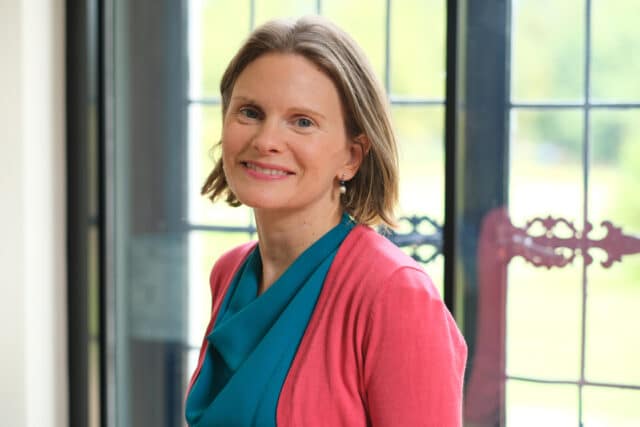Blog
In Praise of the Spoken Word

Vicky Bingham
Headmistress at North London Collegiate School
Read the blog
One of the Labour Party’s education policies that has not perhaps received the attention it deserves is a commitment to promote the spoken word in schools. Sir Keir Starmer has described ‘oracy’ as essential not just for learning and the workplace but for life.
People sometimes mistakenly think of ‘oracy’ as being confined to the teaching of formal public-speaking and debating, but it has a far wider reach than that at school and in the workplace. Many jobs require people to persuade, sell, pitch, negotiate, chair, present, explain or question, all tasks which require dexterity in the spoken word. In education, the ability to articulate ideas orally in the classroom is an essential precursor to being able to express them in writing. And ‘oracy’ is not just about speaking, it is also about listening and engaging with the ideas of others.
When a young person leaves school without Maths and English Language GCSE, we regard this as a failure on the part of the education system. But when we send a young person out into the workplace unable to communicate their wishes, ambitions and ideas clearly, and with a fear of speaking in public, there is no such wringing of hands. I am sure we have all come across the alumnus of our school who comes back to deliver an inspiring talk to pupils, and then confesses that they were terrified of speaking in public at school. This, in contrast, is not seen as any great failure.
‘Oracy’ is not something that the education system currently views as important; it is a side-show, a mere endorsement on the English Language GCSE syllabus. It does not matter what grade students get, they just need to complete the exercise. In the French system, in contrast, oral examination by ‘viva’ and by presentation is a core part of the Baccalaureate assessment framework and has been for many years. It is not just about getting through, but doing it well.
I hope that Sir Keir Starmer’s long-term goal, if he becomes Prime Minister, will be to integrate oracy into the assessment framework, in the primary and secondary curriculum. Without this, it will never carry the same weight as literacy and numeracy. He will face accusations that such a system of assessment will be insufficiently objective and will therefore work against social mobility. We have heard these sorts of arguments before during the pandemic in response to calls for fewer terminal examinations.
But giving every child the confidence in the spoken word is fundamental to social mobility. Giving young people another way to show what they have learnt and can do rather than just terminal examinations and coursework essays could be transformative for pupils who do not see themselves as ‘academic’ in the traditional sense.
Such dreams are no doubt some years away. In the meantime, what could Sir Keir Starmer consider? He could consider introducing Philosophy into the primary curriculum. The 2021 documentary film, Young Plato, charts the story of an inspirational primary headteacher in Belfast’s Ardoyne area, who decided to introduce Plato and Aristotle to his pupils. The boys learn to resolve conflict not through violence but through dialogue.

Sir Keir Starmer could of course consider harnessing the significant expertise of the independent sector in developing confidence in the spoken word, with the aim of giving every state secondary school some form of co-curricular club devoted to the spoken word. Not necessarily the traditional debating club, but entrepreneurial clubs, discussion groups, TEDx events, or student parliaments.
The spoken word needs to be given due attention in the classroom, and this should be part of formal teacher training and induction. Oracy requires strategic planning and high expectations. We are picky as teachers about the quality of our pupils’ written work, we insist on a suitably formal register, we build vocabulary and insist on correct technical language. But are our expectations for the quality of oral work as high? Fear of putting pressure on quieter characters or of inhibiting pupils’ expression sometimes causes teachers to lower their expectations. We do our pupils a disservice if we do not hold them as much to account when they speak as when they write.
Finally, oracy needs a PR make-over. It should not be the preserve of earnest student debaters at the Oxford Union, or politicians. We need role models from all sorts of backgrounds and employment sectors. One of the wonders of the English language is the sheer number of different accents in which it is spoken. Celebrating that diversity of language in our schools would be a great first step to show that confidence in the spoken word belongs to all of us and is every child’s educational entitlement.